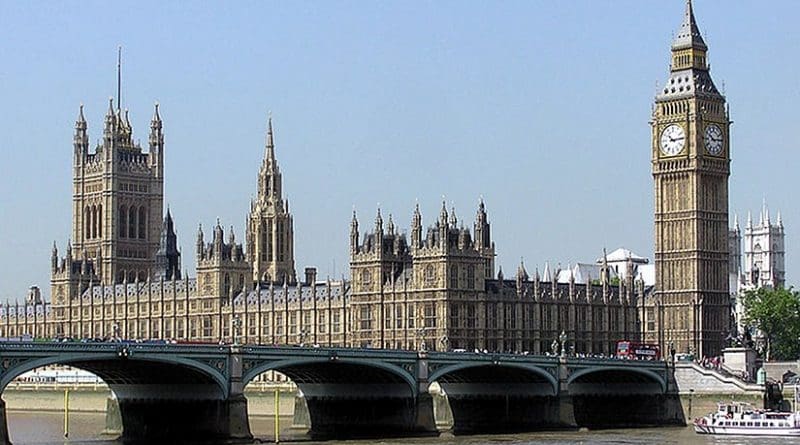Davis: Britain Has Not Formally Assessed Impact Of Brexit On Economy
By EurActiv
(EurActiv) — Britain has not conducted formal sector-by-sector analyses of the impact that leaving the European Union will have on the economy, Brexit minister David Davis said on Wednesday (6 December), arguing they were not necessary yet.
The comments inflamed critics of the government’s handling of the complex divorce process at a time when talks with Brussels have stalled because of a row over how to manage the Irish border after Brexit.
Davis has become embroiled in a long-running argument with lawmakers – including from the ruling Conservative Party – over what preparatory work the government has undertaken, and how much of it should be made public.
“There’s no systematic impact assessment I’m aware of,” Davis told a parliamentary committee, saying it would be more appropriate to conduct such analysis later in the negotiating process.
His remarks drew immediate criticism from lawmakers on the committee, who said Davis was contradicting his previous statement that the government had analyses of the sectoral impact that went into “excruciating detail”.
“Whether it’s through incompetence or insincerity, David Davis has been misleading parliament from the start,” said Wera Hobhouse, a member of the Brexit committee from the Liberal Democrat party.
“It is unbelievable that these long-trumpeted impact assessments don’t even exist, meaning the government has no idea what their Brexit plans will do to the country.”
Parliament could have a decisive role in the Brexit process if it blocks or amends the legislation which the government has proposed to enact the divorce.
Prime Minister Theresa May has only a slim working majority in parliament and is vulnerable to rebellion from within her own party, which is divided over the right approach to Brexit.
Davis and his team of ministers have previously said its sectoral analysis is not a formal impact assessment – a technical document submitted to parliament – and that publishing the work it has done could undermine Britain’s negotiating position.
Nevertheless, lawmakers have pressured the government into releasing a summary of its analysis to the committee. On Wednesday, they complained that the analysis given to them was incomplete and called for more detail.
“We will at some stage do the best we can to quantify the effect of different negotiating outcomes as we come up to them – bearing in mind we haven’t started phase two (negotiations) yet,” Davis said, referring to the second phase of talks which will focus on trade.
He said those assessments would look at the impact of different outcomes on sectors including financial services, manufacturing and agriculture.
“Nothing is agreed until everything is agreed”
But the move to phase two of talks has been thrown into doubt since the Northern Irish Democratic Unionist Party (DUP), sank a proposal on the table on Monday, which would have opened the door to regulatory divergences between the province and the rest of the UK.
The DUP’s ten MPs have a deal to prop up Theresa May’s Conservative government in return for £1.5bn of spending in Northern Ireland.
Ireland’s Prime Minister Leo Varadkar said he could not accept substantial changes to Monday’s rejected text, and that if agreement cannot be reached by the EU summit on 15 December, the first phase of Brexit talks could continue in the new year.
“As far as we’re concerned and as far as the European Commission are concerned … we stand by the text that had been agreed on Monday,” Varadkar told parliament on Wednesday.
“It is the desire and ambition and wish of this government that we should move onto the phase two talks but if it isn’t possible to move to phase two next week because of the problems that have arisen, well then we can pick it up in the new year.”
Varadkar said he understood May had difficult political problems to manage, but it was up to Britain to come back to negotiators in Brussels and Dublin.
May said she had made good progress in Brexit negotiations and that she expected to get a deal that was right for the whole of the United Kingdom.
“We’re leaving the European Union, we’re leaving the single market and the customs union but we will do what is right in the interests of the whole United Kingdom,” May told parliament. “And nothing is agreed until everything is agreed.”

